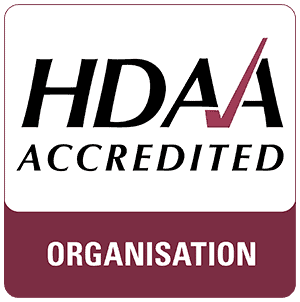





Step away from the pressure and begin processing trauma in a setting designed to support whole-person recovery.



Trauma can shape the way you think, feel, and move through the world. Whether it stems from a single event or a long history of complex experiences, its effects can feel inescapable and deeply isolating. But you don’t have to keep carrying it alone.
At Palladium Private, we provide trauma-informed care for individuals living with PTSD, complex trauma, or unresolved emotional wounds. Our trauma retreat is not designed to feel clinical or institutional. Instead, it offers a calm, nature-based environment where clients can slow down, reconnect, and begin healing on their own terms.
Our team specialises in trauma and PTSD treatment for adults navigating a range of experiences — from childhood trauma and C–PTSD to first responder burnout or military service-related stress. Whether you’re seeking help for the first time or have tried other treatments that didn’t feel right, we’re here to meet you with care, dignity, and deep respect for your journey.
At Palladium Private, trauma recovery doesn’t begin with retelling or exposure. It begins with safety. Emotional safety. Physical safety. Nervous system safety. That’s why our approach is grounded in gentle, trauma-informed care that prioritises stabilisation before anything else.
We understand that trauma affects how you feel in your body, how you relate to others, and how you process the world around you. For some, even asking for help can feel unsafe. That’s why we never force disclosure or push people to speak before they’re ready. Instead, we focus on helping you reconnect with a sense of calm, internal control, and capacity to move forward.
Unresolved trauma doesn’t just live in your thoughts. It shows up in your body, your relationships, your sleep, and your ability to trust yourself and others. That’s why our program integrates both psychological therapies and embodied practices to support healing from the inside out.
Your plan may include trauma-informed counselling, EMDR (where appropriate), somatic movement, breathwork, mindfulness, and creative therapy sessions. These aren’t just add-ons — they’re carefully chosen, evidence-informed practices that help regulate the nervous system, build resilience, and create a foundation for long-term change.
You’ll be supported by a multidisciplinary team that includes health professionals such as a therapist, trauma-informed counsellor, nurse, personal trainers, and yoga therapists. But beyond the qualifications, many members of our team bring lived experience of mental health or trauma recovery themselves.
This means your care is grounded not only in evidence, but in empathy. You won’t be met with clinical distance or one-size-fits-all answers. Instead, you’ll be guided by people who know how complex this work is, and who understand that healing takes time, trust, and a flexible, human-first approach.
From your first intake conversation to your final session, we’ll walk alongside you at a pace that honours both your needs and your readiness.
Many people living with PTSD or complex trauma find that the world feels unpredictable, fast-paced, or emotionally demanding. That’s why the setting in which recovery begins plays such a crucial role.
Set amongst native bushland in the Sunshine Coast hinterland, Palladium Private is intentionally designed to feel calm, consistent, and quiet. With no hospital corridors or clinical coldness, our retreat offers a restorative space where clients can start to slow down, breathe, and begin the process of healing without external pressure.
Clients often tell us that simply arriving here (stepping into nature, hearing the birdsong, being met by warmth instead of urgency) feels like an important shift in itself. This environment isn’t just a backdrop; it’s an active part of the therapeutic process. It allows space for reflection, steadiness, and the kind of work that can’t happen when you’re stuck in survival mode.
Our residential program combines clinical expertise with a therapeutic, retreat-style environment that supports trauma recovery at every level. From the moment you arrive, you’ll be welcomed into a setting designed to reduce overwhelm and help your nervous system settle.
Each client is supported by a dedicated multidisciplinary care team of medical and allied health professionals. You’ll receive a personalised plan that integrates psychological therapies, emotional regulation work, and somatic therapies.








Whether you’re seeking C–PTSD treatment, a trauma healing retreat, or a more compassionate alternative to PTSD rehab, Palladium Private provides a safe and structured path forward.
Taking the first step can feel daunting—but it doesn’t have to be. We’ll walk you through program options, availability, costs, and available funding streams—so you have everything you need to make the decision that’s right for you or someone you care about.
01
Enquire: Submit the form or call 1300 573 095.
02
Complete Questionnaire: Help us match you with the right program.
03
Choose Funding: Explore self-funding, super or DVA options.
04
Confirm Admission: Secure your place and prepare to begin.
05
Arrive & Detox (If Needed): Begin with supported detox if required.
06
Begin Program: Orientation, assessments, and your tailored schedule.
You don’t have to navigate this alone. Whether you’re reaching out for yourself or someone you care about, our experienced intake consultants are here to listen — without judgment or pressure.
You deserve expert care, and we’re ready when you are. One conversation is all it takes to begin.
We work with adults navigating a broad range of traumatic experiences, including childhood trauma, CPTSD, first responder or military-related trauma, grief, burnout, and relational or emotional abuse. Whether your trauma is recent or long-standing, clearly defined or difficult to name, you’ll be met with compassion, not judgement.
No. While we support many clients living with PTSD or complex trauma, a formal diagnosis isn’t required. You might simply feel like you’re carrying too much, or that something from your past is still affecting the way you think, feel, or respond. During your intake assessment, we’ll help determine whether a trauma-informed, residential program is the right fit for you.
Trauma-informed care means recognising how trauma impacts the nervous system, emotions, relationships, and sense of safety, and shaping our program around that understanding. At Palladium Private, this includes avoiding practices that may retraumatise, working at your pace, and offering a choice-driven, person-centred approach to therapy. You will never be asked to re–live your trauma in order to heal from it.
Learn more about how we approach trauma-informed care in Our Program.
Unlike hospital settings, our trauma healing retreat offers a non-clinical, nature-based environment designed to reduce overwhelm and support nervous system regulation. You’ll receive structured care from qualified professionals, with the flexibility and personalisation that hospital programs often lack. Palladium Private is an NSQHS-accredited facility, which means you’ll still receive high-quality, evidence-based care in a setting that feels calm, private, and purpose-built for healing. There are no fluorescent lights or clinical wards here — just space, structure, and a team that meets you where you are.
Before completing your stay, you’ll receive a personalised aftercare plan to support your ongoing recovery. This may include referrals to trauma-informed therapists, lifestyle recommendations, and strategies for managing triggers or setbacks. Our goal is to help you leave not just feeling different, but feeling prepared.
When it all feels like too much, something needs to change.
Whether it’s for you or someone you love, you don’t have to keep living this way.
There is a path forward. Let’s take the first step together.
F A C I L I T I E S & S E R V I C E S N O T I C E